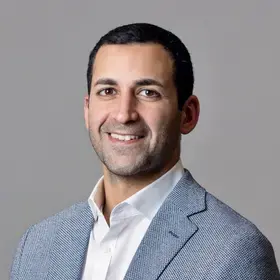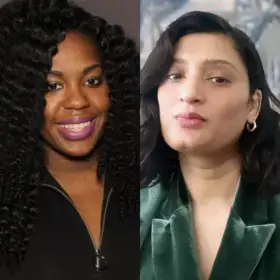Benavides holds a bachelor’s degree in Government and Politics from St. John’s University. Four years after earning his M.S. from Columbia, he decided to pursue a JD at Howard University’s School of Law. Mark credits Columbia’s Negotiation and Conflict Resolution program for guiding him towards a career in law that aligned with his passions. Benavides recently discussed how he applied his learning of conflict resolution frameworks to how he interacts with clients and stakeholders within the court system.
When did you begin considering getting a master’s degree and why did you choose the program of Negotiation & Conflict Resolution?
I was sitting in the library preparing for a paper my senior year of college and I saw an ad for Columbia's NECR program. The name, "conflict resolution" was immediately enticing because I was experiencing a lot of conflict with my colleagues while I was vice president of student government. Also, much like today, this was a time of intense international conflict, including the civil war in Syria and the fallout from the Arab Spring. I chose the program at Columbia because I trusted the institution's ability to attract the brightest professors, to create an intellectually challenging environment, and ability to assist me with finding a career path that matched my passions.
Could you please share your experience of taking on a leadership role as President of the Association of Negotiation & Conflict Resolution Students (ANCoRS)?
During my undergrad I was elected Vice President of the student government. I loved the opportunity to represent student interests. It was actually one of my first roles as an advocate. ANCoRS was an organization largely by and for NECR students where we had the opportunity to create programming that matched our passions, and it provided my colleagues and me an opportunity to advocate for students. The experience as president was amazing. Not only did I get to design the logo, my fellow E-Board members and I created an "Ombuds Panel" where we invited Ombuds from the UN, Mastercard, and the Consumer Financial Protections Bureau to discuss the growing use of ombuds inside the private and public sectors in America. I encourage students to use ANCoRS, and other student organizations, as a tool to help themselves and those around them.
What was the Columbia experience like for you?
It was a dream. Late nights in Butler. Walks along College Walk. Being able to pass the Alma Mater statue every day. Having world renowned professors within and outside of the NECR program. Going to a university that President Obama attended gave me a sense of pride and accomplishment that is hard to fully describe in words.
What are the most important skills that you gained through the NECR program?
I would say there are three important skills I learned from the NECR program. First, it's the skill of empathy. It's not always about "me." In conflict we can get so wrapped up in what we want, we lose sight that there is another living, breathing, human being on the other side who also has needs and interests. Being able to stop being so self-centered , and recognize the human needs of the other has been a skill I try to use every day. Second, in Professor Coleman's class (NECR 5101) I learned "Deutsch's' Crude Law of Social Relations." This law essentially says that the way you approach others is the way they are most likely going to approach you. This is a great skill to have when you want to have a nice and respectful relationship with others. Most of the time, all you need to do is exhibit traits of niceness and respect, and consciously or not, the other will begin to mirror your approach. Lastly, I learned the skill of walking away. In negotiations or mediations we may get so caught up with winning "now" that we lose sight of the bigger picture. The best alternative to a negotiated agreement, known as a BATNA, has consistently reminded me that I do not have to engage in a conflict when it might be best to just walk away and embrace the alternative to agreement.
What led you to apply to law school? Has your Columbia experience or what you learned from the NECR program informed your approach to studying law? Will the program inform what type of law you are interested in practicing?
Following the NECR program, I was a policy and operations assistant for a bipartisan immigration reform non-for-profit. I noticed that during meetings with governments, industry leaders, and non-profit employees, many colleagues who held sway, for better or worse, were attorneys. In order to improve my bargaining position in an often white-dominated society and professional world, as a Mexican-American, it was important to me to earn my JD.
Experiences within the NECR did inform my approach to studying law. With the vast majority of cases being settled outside of the courtroom, I knew that I could employ my negotiation and mediation skills. This is my second year of law school and I'm taking an Alternative Dispute Resolution (ADR) class where I'm not just learning the conflict resolution skills for the sake of learning, but rather, I'm learning how to use these skills in order to help my client reach their preferred resolutions. Also, I'm a student attorney with Howard Law's Child Welfare Clinic, where I was recently sworn in by a DC Superior Court judge. I am so happy that I already have a master's degree in Negotiation and Conflict Resolution so that I know how to interact with my clients and colleagues within the court system.
Based on your experiences, do you have advice for anyone interested in applying to the NECR program?
If you are interested in applying to the NECR program I suggest you think about a few conflicts you've experienced. What happened? What could you have done differently? Do you think your approach would have created a better result? Do you think your future career, marriage, relationships can be compromised by your style of resolution? If you think you can improve your career, advance your life, and help others, then this is the program for you.


